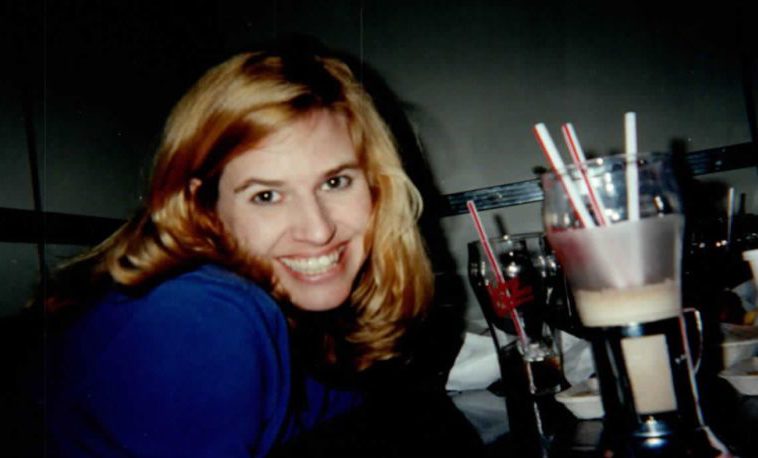When Peter Thiel, a billionaire and a miser, pressed a pillow across the face of Gawker Media, I argued that despite the many inanities of the editors at the flagship site, it would be a huge loss if these properties, employing such smart and talented people, would disappear. Think of all the potentially great writing that would be sacrificed.
Such an example can be read in a new piece at Deadspin, one the sites purchased by Univision and thankfully continued. It’s Dave McKenna’s gorgeous and heartbreaking “The Writer Who Was Too Strong To Live,” a postmortem about Jennifer Frey, a journalistic prodigy of the 1990s who burned brilliantly before quickly burning out. A Harvard grad who was filing pieces for newspapers before she was even allowed to drink–legally, that is–Frey was a full-time sportswriter for the New York Times by 24, out-thinking, out-hustling and out-filing even veteran scribes at a clip that was all but impossible. Frey seemed to have it all and was positioned to only get more.
Part of what she had, though, that nobody knew about, was bipolar disorder, which she self-medicated with an ocean of alcohol. As she slowly drowned, her career and family and friends floated away, and she died painfully and miserably earlier this year at age 47.
Three notes on the piece:
- People who are able to do everything and handle it all and never complain and seem superhuman are often living a lie and headed for trouble. We’re not robots, and it should be viewed as a danger sign when someone can function as one.
- It’s hazardous to project too much of our own experiences onto others. The late David Carr, who wrote a 1997 Washington City Paper profile of Frey, one that bothered her greatly and correctly recognized the beginning of her fall from grace, encouraged McKenna to write about Frey while she was still alive, saying “maybe it’ll give her a kick in the ass.” Carr, who’d made a miraculous recovery from a hellacious addiction, assigned his own type of trouble to her, not realizing she was bipolar in addition to alcoholic and that some mixture of nature and nurture–life itself, really–had already delivered the boot.
- What’s most harrowing about the piece is the realization that sometimes nothing can be done. Frey certainly didn’t want to lose her daughter and career and house to alcohol, but there was no rehab or 12-step program that could undo her mysteriously malfunctioning brain chemistry. None of her friends or relatives could unlock the problem, either. It was a question with no answer.
It’s really impossible to choose the “best part” of McKenna’s article because it’s all the best part, so I’ll just excerpt the opening:
Jennifer Frey drank herself to death.
Frey’s obituary in the Washington Post, her last full-time employer, merely gave “multiple organ failure” as the cause of her March 26 death. But alcohol killed her as surely as a bullet killed Lincoln.
She died abusing a drug that kills millions of people every year. But the life of Jennifer Frey was not a common one.
Frey was a can’t miss kid in sportswriting in the early 1990s. Just months out of Harvard, she was subjected to a high-profile episode of sexual harassment on the job. In response, Frey spoke forcibly and with righteousness for her gender and her profession in print and on national television as the controversy over women in locker rooms crested.
“There is a lot of talk about the players’ indignation at being forced to allow women into their dressing room,” Frey wrote while still an intern at the Miami Herald. “Few people are aware of the indignities felt by women beat reporters who are frequently harassed by athletes who do not understand that the women are there to do a job, not enjoy a peep show.
“It is not fun for a woman to go into a male locker room. It is not exciting. It did not ‘turn me on’ when a major-league baseball player dropped his pants and asked me to evaluate his anatomy.”
Soon after, she was wowing her elders at the Philadelphia Daily News and New York Times, and, in an era before the internet, writing reported stories at a blogger’s pace. Frey was also living like someone ready to take Manhattan and then the world. Everybody who knew her through the 1990s remembers Frey as both the organizer and the life of every party, and a party could be found in every town Frey filed copy from.
“Along with everything else she had, she was so much fun,” says Chuck Culpepper, a writer at the Lexington Herald Leader when he met Frey at a 1991 NCAA tournament game. “My God, was she fun.”
Mike Wise, who first worked with her at the New York Times in the early 1990s, vouches for the good times that awaited anybody lucky enough to be near vintage Jennifer Frey. “Being around her, you were just in awe,” he says. “If friends are going out for dinner, she would find the best place, and it didn’t feel like you were meeting her for dinner, it felt like you were in a parade going down Broadway and she was leading it.”
Frey was recruited from the Times by the Washington Post in 1995, at a time when the sports section was as stacked with big names as at any time in the history of the newspaper. Frey was set to become as big a deal as anybody on the masthead.
That never happened.•

